Jonathan Hayashi: Gangster Turned Pastor
The photographs show a shirtless teenager with a head of dirty blond cropped hair, a toned body, and a pair of Ray-Bans. A huge tattoo of a pair of praying hands fills his back. A cross is imprinted on his right arm.
That was Jonathan Hayashi 12 years ago, a gangster who fought on the streets of Japan. No one would have believed back then that he would become a pastor in America today.
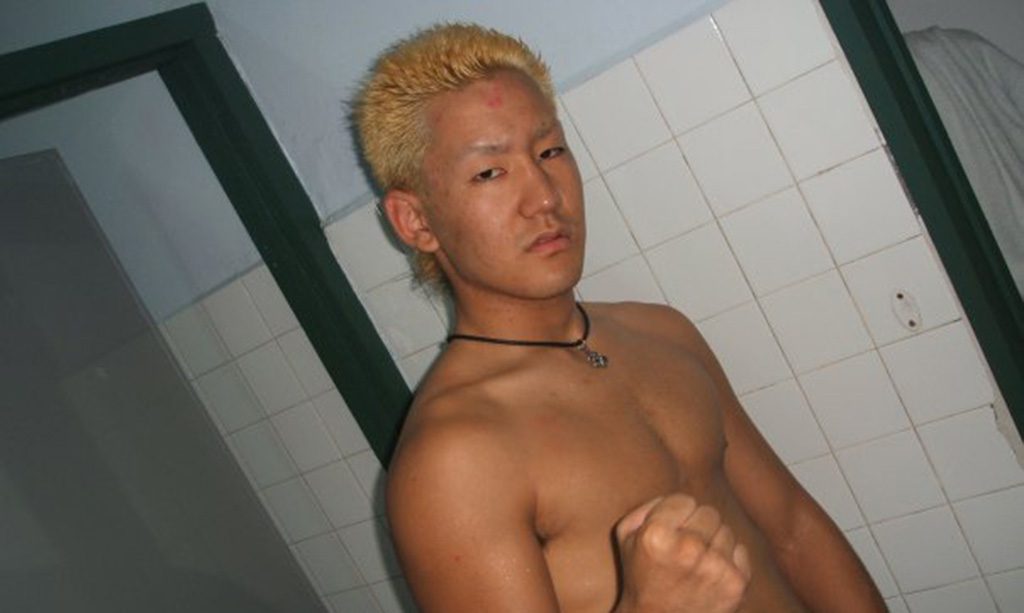
Jonathan Hayashi as a teenager
Troubles at home
Jonathan’s troubles began at home—and with his father, a violent man who struggled with anger management issues.
He recalls times when his father would beat his mother in public at the bus stop because she was a few minutes late in fetching him. Once, his father even threw one of his brothers off the second floor of the house.
Jonathan was only six then. His second eldest brother, Kaz, had punched a wall that day and his father was livid. He dragged Kaz out of bed by his hair and hit him. Crying and pleading, their mother tried to stop her husband. But Jonathan’s father would not relent—not even with Kaz’s desperate cries of “I’m sorry, I’m sorry”. Then his father flung Kaz off the second floor of the house onto the first. Thankfully, Kaz did not suffer any major physical injury from that fall.
“Being at home was a terrible experience, there was always a lack of peace, of security, and of home,” Jonathan, now 28, tells YMI. “Growing up, I had a tremendous fear for my father. I never knew if his anger would lead him to try anything worse on me.” Describing his father as a “micromanaging dictator”, Jonathan says that he always felt distant from his father, who wasn’t a Christian.
On the other hand, Jonathan shared a close relationship with his mother, a Christian, and would accompany her to church weekly. Although he didn’t consider himself a Christian then, the situation at home drove him to his knees to pray daily for God to save his father.
But God didn’t seem to answer. “Even though I prayed so much, He just seemed very distant from me and I didn’t see my situation at home improve,” he says.
Troubles at school
On top of this, a hostile environment in school made things worse. Jonathan was born in Kentucky, USA, as his father had got a job there as a scientist for CorningWare. The family had moved back to Japan when he was three, so Jonathan struggled with speaking and understanding the Japanese language.
As a result, he was frequently picked on in class. His classmates would ridicule him with foul words in Japanese, knowing that he couldn’t understand the language. “At first, I was confused; then I felt really shameful for not being able to speak Japanese well,” says Jonathan. He was also mocked and alienated for being the only Christian in his class.
When he was in seventh grade, the abuse from his schoolmates turned physical. He recalls how, on one occasion, a group of seniors used a wooden Japanese sword to beat him up in the bathroom till he was left bruised and bleeding. He says: “I was just an easy target to everyone. Going to school was just plain dreadful and full of negativity. I hated school.”
Finding Solutions
At the age of 12, Jonathan got into bad company and joined a gang. His poor attendance at his high school got him kicked out, and he started smoking, drinking, and taking drugs. He found a girlfriend, started working out, and joined his gang for fights.
“I was trying to fill the void and emptiness within me with something, and I went for all the things of this world that promised me fulfillment and purpose,” he says. “I turned to earthly things rather than the Creator himself.”
“Growing up, I watched my father abuse my mom and siblings and naturally, I started to project that onto others,” he says. “I was deeply hurt by so many people, and the internal conflict turned into an external attack onto others.” He remembers one particular fight where he fought one-on-one with a rival gang member. It left him with a deep cut in the jaw that required four stitches and his opponent drenched in blood.
By the time he turned 14, he had stopped attending church. “Deep down, I knew there had to be more to life than these meaningless activities but at the same time, I felt that I couldn’t turn to God,” he explains. “I hated God.”
God’s Work
But God was not done with Jonathan. At the age of 15, he was arrested for stealing a motorcycle and being part of a gang. As he sat in the police car, God tapped on Jonathan’s heart, saying: “Jonathan, I have a bigger plan for you—this is not what you’re supposed to be.”
Jonathan was not convinced. “I swore at God, ‘You’re not coming into my life now, not after what you didn’t do for me. If you loved me, why didn’t you give me a dad that loved me? If you loved me, why didn’t you protect me from the bullies in school? If you loved me, why didn’t you protect my mother and my siblings from my father’s abuse?’” he says.
When Jonathan’s parents came to pick him up from the police station, the first thing his father said to him was: “You bring dishonor to the family.” That one sentence pushed Jonathan off the edge. He glared at his father in anger and retorted: “You were the one who taught me to be violent and rebellious. You have no right to be ashamed or upset.”
“I felt zero remorse or repentance for what I had done,” he shares with YMI.
At that point of time, Jonathan wasn’t the only one in his family in trouble. Jonathan’s eldest brother had left the Christian faith, walked out of home, and lived an “open, vile and rebellious life”. His second brother had beaten up a classmate in high school and left him hospitalized for a week. His sister, the youngest of his siblings, had dropped out of school.
Desperate, his mother sent him to a missionary home in Tokyo to stay. That’s when he cut off all contact with the gang and broke up with his girlfriend. But he wasn’t able to quit smoking and taking drugs.
While attending the church there, he was introduced to Pastor Kawamata.
Pastor K’s influence
There was something different, and special, about Pastor Kawamata. While other Christians despised and judged Jonathan for his past, Pastor Kawamata offered him words of encouragement. “Pastor K was the real deal—he was so full of joy and love,” says Jonathan. “He treated me as if I were his son.”
It was Pastor Kawamata’s love, he adds, that ultimately led him to Jesus. “I was drawn to this love that no other had showed me and I had to know his secret.”
At the age of 16, Jonathan opened the Bible for the first time. Although he had trouble reading because of his dyslexia and Attention Deficit Hyperactivity Disorder (ADHD), his desperation drove him to read the Word.
The verse 1 John 3:1 convicted him and led him to accept Jesus into his life. In that verse, the apostle John writes that God’s love was shown to us when He called us His children. Gripped by God’s love for him, Jonathan began to see things in a new perspective. Jonathan says: “Everything changed when Jesus came into my life—I could no longer be the same.”
It was also at that point that he stopped smoking and taking drugs entirely. Instead, he set his sight on becoming a pastor like Pastor Kawamata.
Starting Afresh
After a few months, he followed the suggestion of his pastor’s wife and moved from Japan to Malaysia, where he finished high school at a Christian school. While Jonathan was in Malaysia and away from his family, God kept bringing to his mind his broken relationship with his father. “I knew that in order for me to grow in my faith and to model Christ-likeness, I needed to forgive my father and seek reconciliation.”
So when Jonathan went home for one of his winter breaks, he asked his father for forgiveness and forgave his father. They also exchanged hugs—which is a big deal in Japanese culture—and said “I love you” to each other.
After graduating from high school in Malaysia, Jonathan did a degree in pastoral ministry at a Bible Institute in Chicago, then a Masters’ in pastoral leadership at a Bible Seminary. He met his wife, Kennedi at the Bible Institute. They now have two daughters, Kaede and Anna.
Today, Jonathan serves as a pastoral staff at a church in Missouri, USA, where he counsels couples with marital problems and students with depression. He is also pursuing a doctorate in biblical counselling. All his siblings also returned to the faith, and now serve as pastors, missionaries, or professors at a Christian seminary. Their father also came to know Christ five years ago.
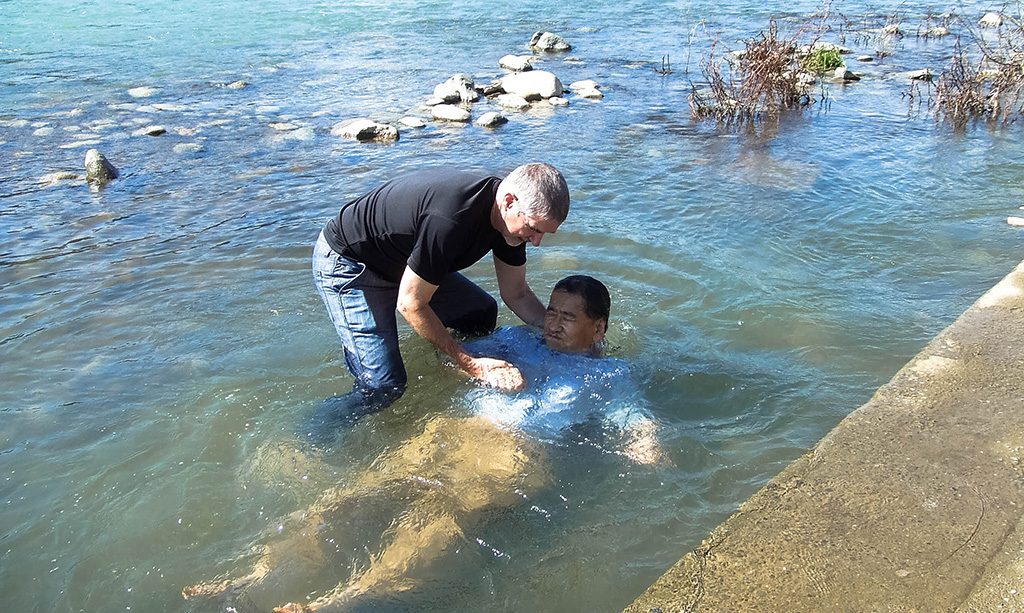
Jonathan’s father getting baptized
Jonathan attributes a large part of who he is today to his mother, who never gave up on the family. “My mother was so faithful and persistent. Christ was evident in her, not just on her lips but also in her deeds,” he says. “From the lifestyle that she led, it was very obvious that Christ is center of all things in her.”
He recalls how she would wake up at 4 a.m. every day and spend time reading and praying for the family in the corner of her room secretly. She has also been helping the Our Daily Bread Ministries translate the Our Daily Bread devotional into Japanese for the past 25 years.
Jonathan is no longer in contact with Pastor Kawamata today, but he will never forget his love and kindness. He also credits the pastor for pointing him towards full-time ministry.
Another person whose life and words have played a significant role in changing Jonathan’s is the renowned American evangelist and publisher Dwight Lyman Moody, who started out as a poorly educated shoe salesman. “If God could use Mr. Moody, why should he not use the rest of us?” Jonathan says.
“My future plans and goal is to become a senior pastor and to preach the gospel to the ends of the earth. I believe God is calling me to shepherd the flock. My dream is to proclaim His Name and preach the Word with all my might to see men saved, baptized, and added to the church,” he says.
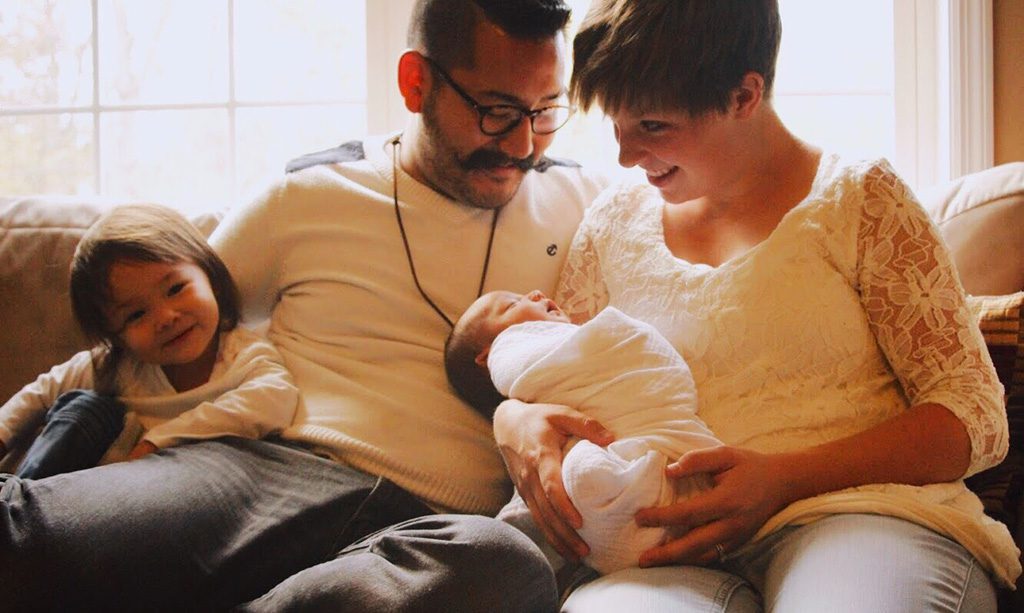
Jonathan’s family photo

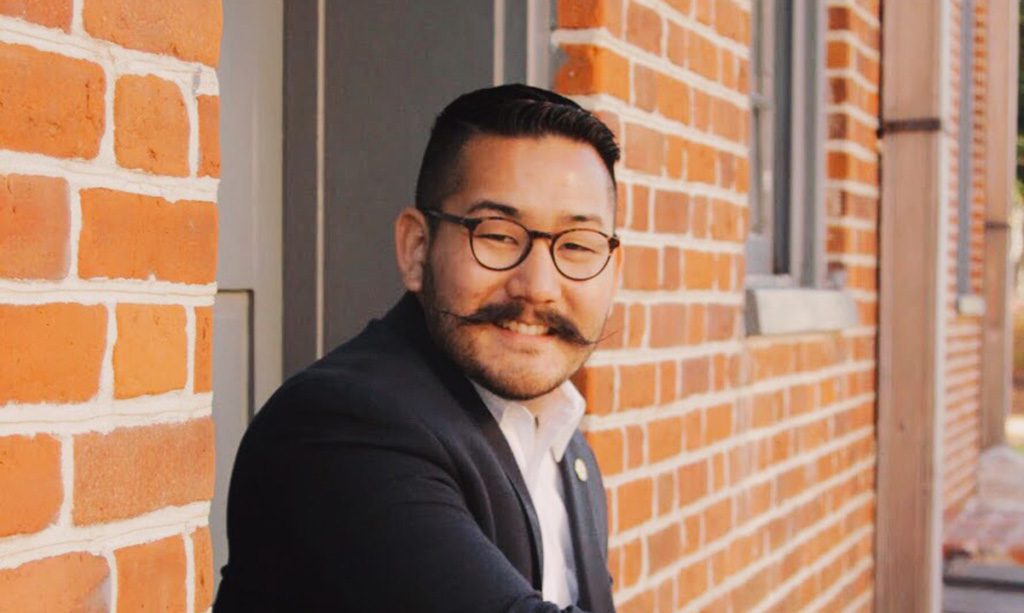

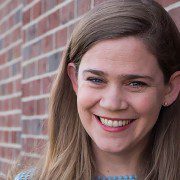



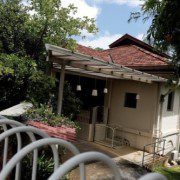

Wow it is a great heart touching story and unbelieveble . God really does miracles